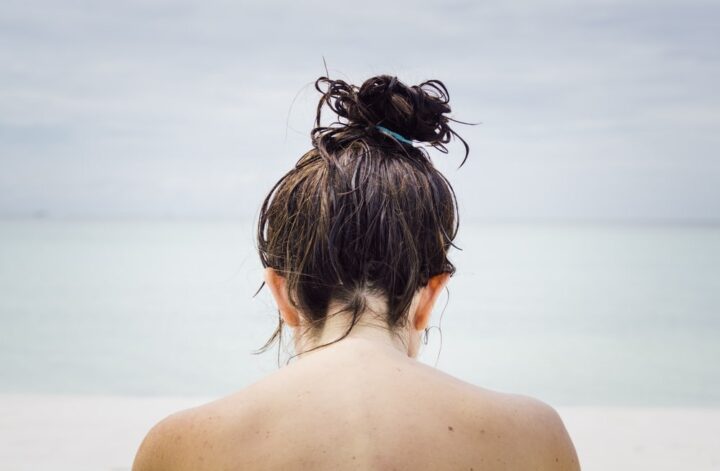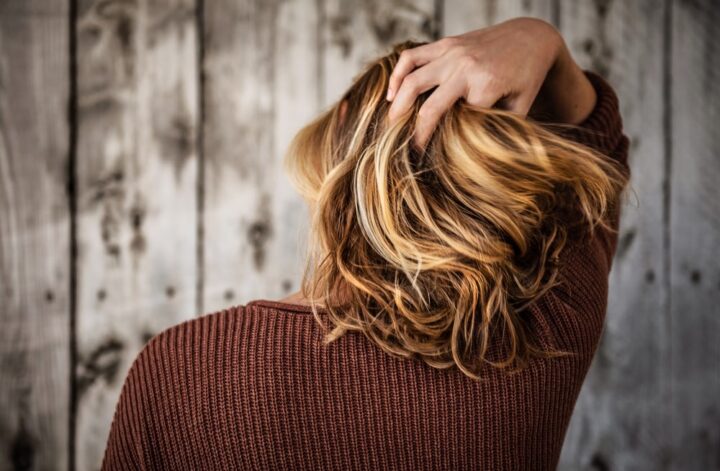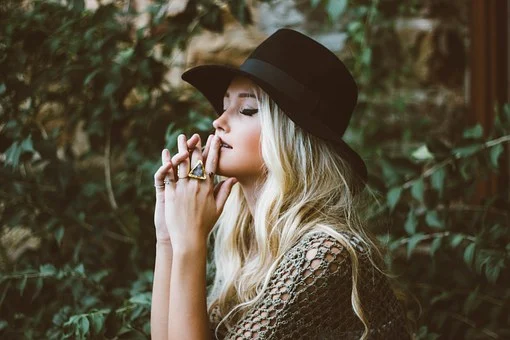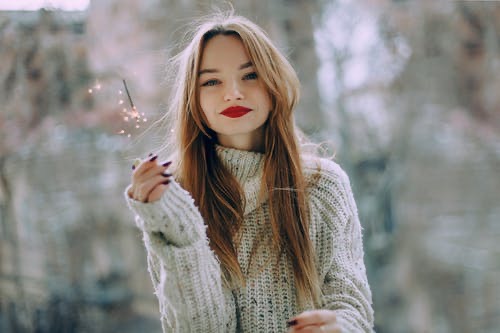Oily or greasy hair is a common issue that causes a lot of frustration and discomfort. A question I am asked frequently in the salon is: What causes oily hair and how to fix it?
Oily hair is the result of a variety of factors including unhealthy eating habits, exercise, medications, stress, hormonal fluctuations, incorrect products and hair care, and even changes in climate. Often the assumption is that we need to shampoo more frequently, but this can be a vicious cycle. Over shampooing can strip away the natural oils, called sebum, leaving the hair vulnerable. As a result, the sebaceous glands to overcompensate by creating more oil, and the cycle continues.
There are many solutions, natural remedies and changes to our daily habits that will resolve excessive Oiliness. Shampooing more frequently is not a viable solution and can cause damage to your hair in the long term. Let us dive into the details about what causes greasy hair and what are the solutions.
Possible causes to oily hair and how to fix them
1. Unhealthy eating habits
Excessive refined carbohydrates and saturated fats are hard for the body to digest and can result in oily hair and skin. In order to maintain a healthy lifestyle, minimize over processed and oily food. Eating a balanced diet of healthy fats, proteins and carbohydrates will result in healthier hair and general wellbeing.
2. Exercise
After a good workout it is inevitable that our hair will be oily. Ideally we would shampoo no more that twice or three times a week, so how do we get our hair to look and feel clean after a workout? A sweatband will help to absorb sweat during the workout, minimizing the amount left on your hair. You can braid your hair before your workout into two plaits. Once the work out is over and your hair is dry, undo the braids and you will have loose waves that don’t require any heat styling. Finally, a good dry shampoo will do wonders between washes. Go for a dry shampoo that is powdered, rather than a spray as these tend to absorb more grease, leaving your hair feeling and looking fresh.
3. Medication / hormone fluctuation
Medication such as contraceptives and hormone replacement medication can cause an increase in oil production. Certain kinds of steroids can also result in oily skin and hair as well as medications which cause dehydration, which leads to a production of excess oil. If you suspect hormone fluctuations are causing excessive oiliness you should consult with your doctor. Pregnancy causes hormone fluctuation which can also result in oily hair. I discuss how pregnancy affects hair in greater detail here.
4. Incorrect hair care and products
It is important to remember that your scalp does’t necessarily have the same needs as your hair. You might have an oily scalp and dry ends, in which case you would need a shampoo for your scalp that is specifically for oily hair, and a conditioner for your ends (only your ends!) for dry hair. Fine, straight hair tends to be oilier, and this is because there is not enough hair to absorb the amount of oil produced by the scalp. The oil travels faster down the hair shaft due to it being straight much faster than it would if the hair were curly. Your hairstylist will be able to recommend the correct products for you if you think this might be your problem. More about general hair health here and more about hair consultations here.
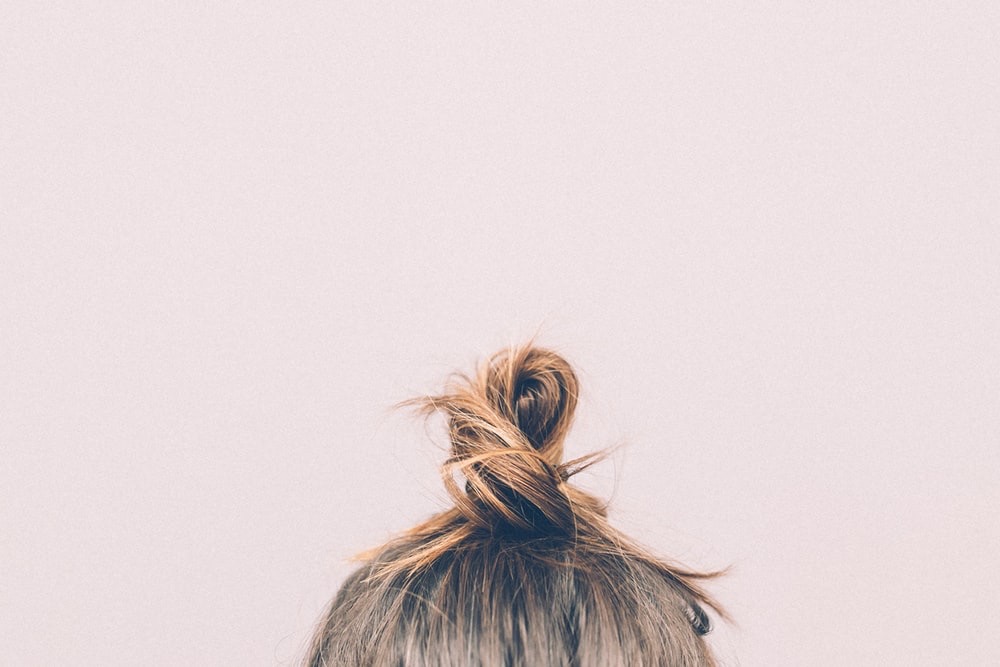
I’ve tried all of these tips and my hair is still oily, now what??
There are a few more things you can do to prevent excessive oiliness:
- Change your pillowcase weekly, they accumulate oil buildup and can make your hair greasy faster.
- Make sure your styling tools and brushes are cleaned regularly, they also accumulate and spread oil.
- Avoid excessive brushing, this includes styling and straightening as this spreads oil throughout the hair.
- A cold rinse on your hair at the end of your shower will close the cuticles and can prevent excessive oil production.
- Avoid products containing silicon.
- A thorough rinse on days you don’t shampoo will significantly reduce oiliness.
- Hats and head bands can trap heat and spread oils, better to avoid head gear when possible.
Natural remedies and recommended products for oily hair
There are several natural products which can assist in the fight against grease:
- Aloe Vera deeply and gently cleans the hair without compromising the integrity of the hair strands.
- One tablespoon of Apple cider vinegar mixed with a cup of water can be used to rinse the hair to gently restore PH balance and remove oil.
- Tea tree oil mixed with baking soda unclogs pores and reduces bacteria. It should be mixed either with a carrier oil or with honey, which is antibacterial and anti inflammatory. Be sure to rinse thoroughly after use.
- Some of my favorite shampoos for oily hair are: Hairburst and Aveda rosemary mint.
What is Seborrheic Dermatitis?
Seborrheic dermatitis, or also known as cradle cap in infants, is a condition which appears as scaly, greasy patches on the scalp. These patches can become thick and crusty, and while it may cause some discomfort it is generally harmless and typically clears up on it’s own. In an infant it will usually clear within a year and in adults it can take longer. Flare-ups can come and go and are triggered by a variety of factors such as stress or cold weather. In adults it is not always limited to the scalp and can appear in other areas of the body. It is not connected to hygiene, rather a specific yeast or fungus in the oil secretion on the skin.
Dandruff shampoos can be affective in treatment of Seborrheic dermatitis, but they have different active ingredients so if one doesn’t work, another might still. If symptoms persist, see a dermatologist. Treatments include ointments, corticosteroids, anti fungal gels or shampoos.
Related questions:
How to style oily hair when there’s no time to wash it (or you ran out of dry shampoo)
The easiest way to style hair when it’s oily is to go for a wet look, you can slick it back into a tight ponytail or bun. Braids are also great for oily hair days, double Dutch braids are super cute as well as French braids. A top knot looks cute and can be worn with the lower section of your hair down for softness. As a last resort a head scarf or hat will do the trick.
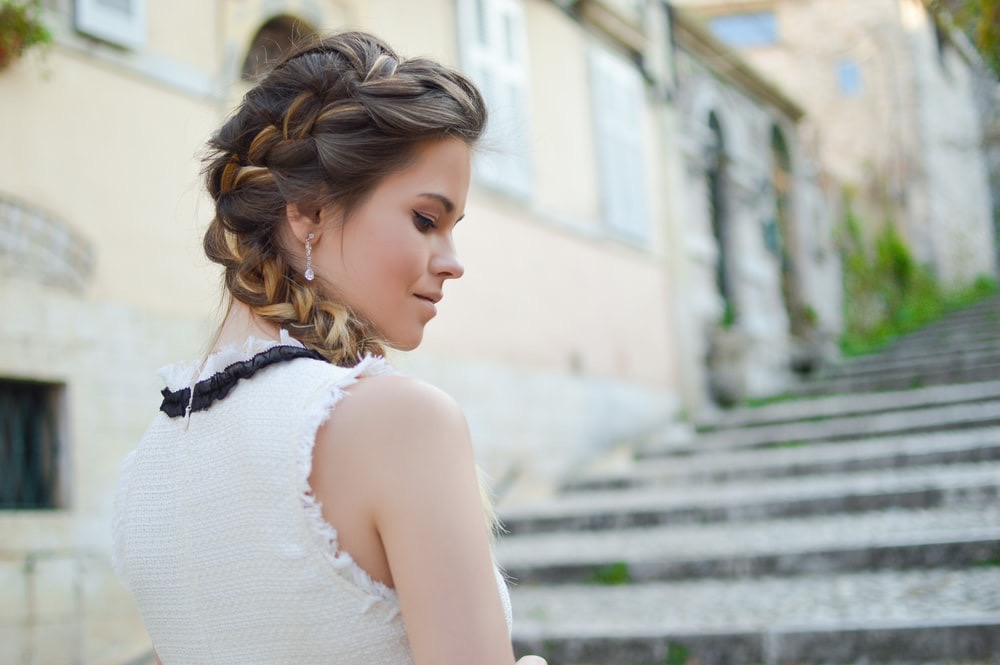
What is the ‘No Poo’ method and does it really work?
Due to the above mentioned cycle of over shampooing and over production of sebum, many choose to forego shampooing altogether. While for most people there is no medical reason to shampoo our hair, there is also no scientific research to support the belief that the ‘No Poo Method’ is the healthier option. That being said, it is not detrimental either. How frequently we shampoo our hair, if at all, is a personal choice. If this is an interesting idea to you, I delve into the no-poo method in greater detail here.
Remember to pin this to your boards so you can come back to it later!
